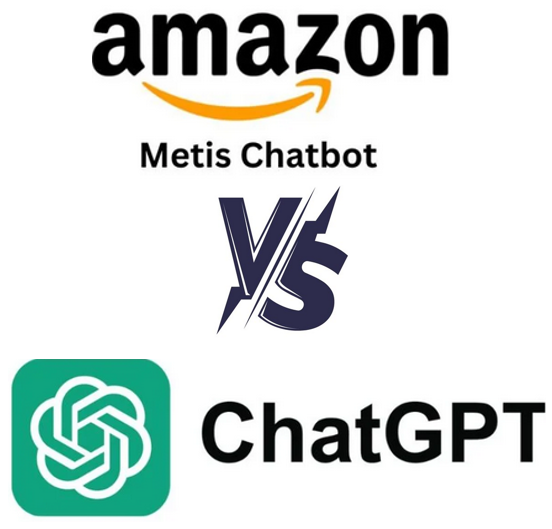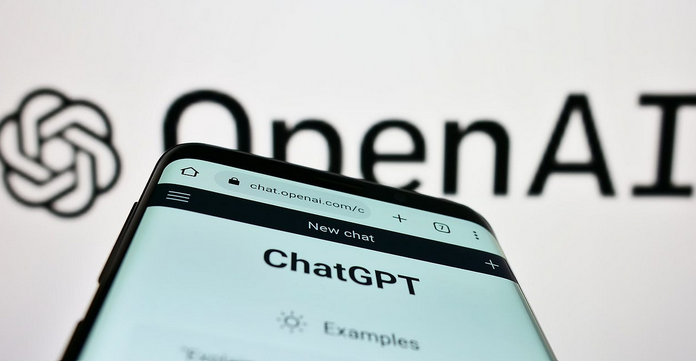Amazon’s Metis: The Next Big Player in the AI Chatbot Arena
Amazon is gearing up to revolutionise the AI chatbot landscape with its latest development, “Metis.” Positioned to compete directly with OpenAI’s ChatGPT, Metis is set to be unveiled later this year. This move marks Amazon’s most ambitious step yet in the AI race, aiming to secure a leading position among tech giants like Microsoft, Google, and Apple.

Amazon’s AI Journey
Amazon’s journey in AI has been marked by significant investments and incremental innovations. Last year, the company invested a formidable $4 billion (USD) in AI research and development, signalling its serious intent to dominate the AI space. Despite launching various AI-powered tools like Amazon Q for enterprise use and Rufus, an AI shopping assistant, Amazon has yet to produce a consumer-facing AI product that captures the market’s imagination.
Amazon’s approach to AI has evolved over the years. Initially, the company focused on integrating AI into its existing services, like Amazon Web Services (AWS) and its e-commerce platform. AWS, in particular, has been a significant area of development, with Amazon introducing a range of AI and machine learning tools to help businesses leverage the power of AI. However, these efforts were largely behind the scenes and did not directly impact the average consumer.
The introduction of AI-driven features in Amazon’s voice assistant, Alexa, marked one of the company’s first forays into consumer AI. Alexa’s ability to understand and respond to voice commands revolutionised the smart home industry, making it easier for users to control their devices, get information, and even shop using voice commands. Despite its success, Alexa has faced criticism for its limited AI capabilities compared to newer, more advanced chatbots.
Introducing Metis
Metis, named after the Greek goddess of wisdom, is designed to be Amazon’s most powerful chatbot to date. According to Business Insider, Metis will leverage Amazon’s new foundational AI model, Olympus, which promises enhanced capabilities in text and image-centric conversations. The chatbot will not only answer queries but also share links, respond to follow-up questions, and generate its own images, making it a versatile tool for users.
One of the standout features of Metis is its ability to use retrieval-augmented generation (RAG). This technology allows the chatbot to pull in real-time information that it wasn’t specifically trained on, such as up-to-date stock prices. This capability positions Metis as more than just a conversational assistant; it is an AI agent capable of making autonomous decisions and performing tasks based on new data.
The potential applications for Metis are vast. For example, in a business setting, Metis could act as an intelligent virtual assistant, helping employees manage their schedules, find information quickly, and even automate routine tasks. In the healthcare industry, Metis could assist doctors by providing up-to-date medical information and helping to diagnose patients based on their symptoms. For consumers, Metis could enhance the online shopping experience by providing personalised recommendations and helping users navigate Amazon’s extensive product catalogue.
The Future of Alexa
In addition to Metis, Amazon is also working on a revamped version of its popular voice assistant, Alexa. Dubbed “Remarkable Alexa,” this upgraded version will feature advanced AI capabilities, including the ability to compose emails and place orders with simple voice commands. The service is expected to have a paid tier, potentially generating significant additional revenue for Amazon. Analysts from Bank of America project that even a 10% adoption rate among existing Alexa users could add $600 million to Amazon’s sales.
The future of Alexa lies in its ability to become more than just a voice assistant. By integrating advanced AI features, Amazon aims to transform Alexa into a comprehensive digital assistant capable of managing various aspects of a user’s life. Remarkable Alexa will offer enhanced personalisation, learning users’ routines and preferences to provide more relevant suggestions and automate tasks. For example, Remarkable Alexa could learn that a user typically orders groceries on Fridays and automatically creates a shopping list based on previous purchases.
Moreover, Remarkable Alexa will be equipped with the ability to interact with other smart home devices in a more intuitive manner. Instead of merely responding to commands, it will anticipate users’ needs and take proactive actions. For instance, if Remarkable Alexa detects that the user’s calendar shows a meeting during lunchtime, it could suggest ordering food from a preferred restaurant and have it delivered at the right time.
Competing in the AI Arena
Amazon’s push with Metis and Remarkable Alexa underscores its commitment to catching up with and surpassing its competitors in the AI domain. While companies like Google and Microsoft have made significant strides with their AI offerings, Amazon’s comprehensive approach, combining advanced chat capabilities with real-time data retrieval and autonomous decision-making, could set a new standard in the industry.
However, the road ahead is challenging. Despite its substantial investments and strategic initiatives, Amazon has yet to establish a dominant presence in the consumer AI market. The release of Metis later this year will be a critical test of whether Amazon can turn its AI ambitions into reality.
Google, for instance, has made significant advances with its AI initiatives, such as Google Assistant and its language model, LaMDA. Google Assistant is known for its seamless integration with various Google services and its ability to understand and respond to natural language queries. Meanwhile, LaMDA focuses on enabling more natural and open-ended conversations, pushing the boundaries of what AI can achieve in terms of human-like interactions.
Microsoft, on the other hand, has been a major player in the AI space with its Azure AI platform and the integration of AI into its Office suite. The company’s partnership with OpenAI and the integration of GPT-3 into its products have demonstrated Microsoft’s commitment to leading the AI revolution. These advancements have set high benchmarks for Amazon as it strives to make its mark in the consumer AI market.
Conclusion
Amazon’s development of Metis marks a pivotal moment in its AI journey. As the company strives to compete with established AI leaders, the success of Metis and Remarkable Alexa will be crucial. With advanced features and the promise of autonomous decision-making, Metis has the potential to redefine what consumers expect from AI chatbots. As we await its release, the tech world watches keenly to see if Amazon can finally secure its place at the forefront of AI innovation.
In the highly competitive AI landscape, innovation and adaptability are key. Amazon’s commitment to investing in AI research and development, coupled with its strategic initiatives like Metis and Remarkable Alexa, demonstrate its determination to not only catch up but potentially surpass its competitors. If successful, these efforts could reshape the future of AI and establish Amazon as a leader in this rapidly evolving field.


















